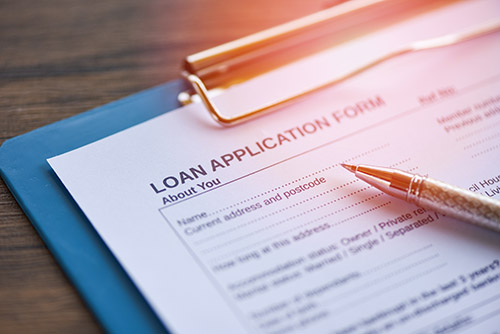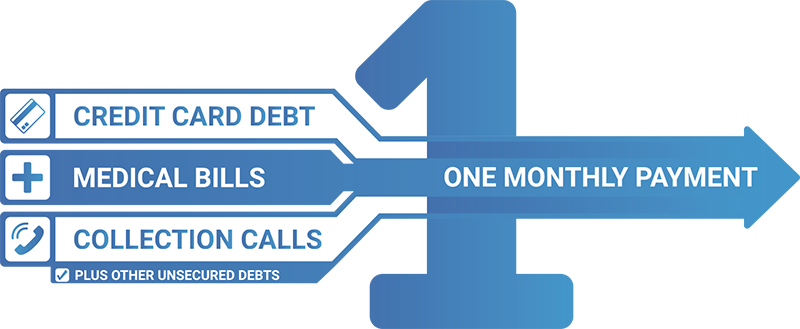Consolidate your debt into one simple monthly payment without a loan, and gain financial stability with our debt consolidation program.
-
Reduce your monthly payments up to 50%
-
Reduce interest rates up to 75%
-
Learn about your debt relief options
-
Pay your debt off sooner
-
Stop late and over-limit fees
-
Stop the collections calls
Get a Free Debt Consolidation Consultation
There is ZERO cost or obligation to you, and may improve your credit score over the duration of the program.
By clicking “Submit” I consent to receive calls and email message offers/information from Debt Reduction Services, Inc. using an autodialer/pre-recorded message at the number I provided. I understand that msg/data rates may apply and that my consent to such communications is not a requirement for purchase. If you would like to stop receiving text messages from DRS, simply reply to a received text with the word STOP.
 We’re a nonprofit debt relief company, licensed in all 50 states.
We’re a nonprofit debt relief company, licensed in all 50 states.
We can help you end the stress of debt and escape the debt cycle for good.
Reduce your monthly payments up to 50% and pay off your debt faster.
We have already negotiated reduced interest rates with all major creditors and most regional and local lenders in order to assist you in repaying your debt sooner than you would be able to on your own. Often, we’re able to leverage our existing relationships to stop your late and over-limit fees, and even lower your required monthly payments.
How it Works
Step 1.
Talk to one of our certified debt consolidation counselors.
Step 2.
Our preset terms with creditors can get you lower interest rates and payments.
Step 3.
Make just one simple monthly payment to us and we’ll distribute it to your creditors for you.
Reviews and Success Stories
Kansas Debt Relief
In Kansas, household debt is relatively low compared to other states. The average Kansas household owes more than $5,700 in credit card debt, which is a little lower than the nation’s average of $6,270. Although this is lower than the average, this figure has been on the rise in recent years. This is in part due to the economic strain of the pandemic, as well as the steadily rising cost of living throughout America.
One reason for the relatively low level of household debt in Kansas may be the state’s strong economy. The unemployment rate in Kansas is just 2.5%, well below the national average of 3.6%. The median household income in Kansas stands at $60,853, which is also above the national average.
With such a strong economy, Kansas residents appear to be in a good position financially. However, it is important to keep an eye on debt levels as they have been on the rise, particularly in recent years. If debt continues to increase at a rapid rate, it can quickly outpace your income and become a problem. If you have found yourself in this position, there are debt relief options that can help make your debt more manageable.
Debt Relief Options in Kansas
Consider Starting with Credit Counseling
Credit counseling is an opportunity to sit down with a certified third-party individual and comb through your finances. Your counselor may offer certain ways to revise your budget to avoid increasing your debt. They can also recommend debt relief programs that make the most sense for your finances. Having a complete picture of your finances is key to beginning your journey to debt-free living.
Paying Debt Off on Your Own

To start, you will need to take an in-depth look at your finances. Add up your total monthly expenses, including things such as rent, gas, groceries, and bills. This will help you see how much extra money you can comfortably put towards your credit card payments each month. Then, add up all of your minimum monthly payments and compare the number to how much you have left over from your total monthly expenses.
Your goal should be that the number left over from monthly expenses is larger than your minimum credit card payments combined, which you leave you with additional money to place towards your debts. If you find that the left-over number is smaller than your minimum credit card payments, you will need to cut back on the budget in certain areas, such as shopping for more affordable groceries or carpooling when possible.
There tend to be two methods of putting the excess money towards your credit card payments.
- Pay Off of the Smallest Debt First
- If you have more than three cards and aren’t too worried about high interest rates, this may be the best option for you. Pay all of your minimum monthly credit card payments and add any excess money to the card with the smallest balance. Once you have the smallest balance paid all the way to zero, roll over the entirety that you were paying on that card to the next smallest card. You’ll shrink your debts one by one and will be able to make bigger payments to the higher balance cards as you knock each one down to zero.
- Pay off the Debt with the Highest Interest Rate First
- If you have less than three cards and high interest rates that seem to undo all the progress you make each month, this may be the best option for you. Just like the previous option, you will pay all of your minimum monthly payments but add your excess funds to the card with the highest interest rate first. This saves you money in the long run as you’re giving far less in interest over time.
Debt Settlement
Typically, debt settlement is offered by for-profit companies. The strategies used can cause significant harm to your credit score, such as telling you to stop all payments until a settlement is reached. There is no guarantee that your debt will be entirely settled, and you could be left with a poor payment history on top of debt. Additionally, you pay a monthly fee on top of the portion the company takes out of the savings they get you.
Although this debt relief method is advertised as effective and inexpensive, this tends not to be the case. Research shows that companies who practice debt settlement on a client’s behalf are only successful 10% of the time.
If this method is successful, you pay thousands of dollars for the service, you reach some sort of settlement while your credit score gets dinged month after month, and after all the fees you still save money. If the service fails, you pay your monthly fee with no return, your credit score suffers, and you are still left in debt. Some creditors have chosen to sue over the money that was unpaid during debt settlement negotiations.
Debt Consolidation Loans

Even if you qualify, there is no guarantee that the loan will cover the entire amount of your debt. Depending on the qualifications and requirements of the lender, you could be subject to high interest rates and a longer repayment term. Credit counseling is most often not included in this option, so unless you seek it out prior to applying for the loan, you may not have the tools necessary to keep up with payments. In the end, this solution can take far longer to pay off your debt and may not lead you to debt-free living.
Bankruptcy
Although bankruptcy is often described as a clean slate, this method of debt relief has long-lasting negative impacts, particularly on your credit score. Bankruptcy remains on your credit report for 7-10 years, affecting your everyday life. If this is coupled with poor spending habits, there is a high chance that you could find yourself filing for bankruptcy again in the future.
Bankruptcy should be treated as an absolute last resort, only considered after you’ve exhausted your other debt relief options.
Debt Management Plans (DMP)

The requirements to enroll in a DMP are far less strict than those of a debt consolidation loan, and even those with poor credit can get started with a DMP because your credit score is not a factor for qualifying for a debt management plan.
When you’ve got more debt than you can keep up with, and you’re having a hard time making your monthly payments, a debt management plan can offer relief.
Kansas Debt Relief FAQs
How does a debt relief program affect my credit?
It depends on what type of debt relief program you choose. While debt settlement often has negative impacts on your credit depending on the strategies used, a debt consolidation loan may not as long as you consistently pay back the loan.
Bankruptcy is a heavy hit on your credit for 7-10 years. Alternatively, a debt management program will help your credit score over time as your debt shrinks over time. With the tools given to you by the financial education, you should be able to continue to grow your credit score.
Is a debt management plan bad for my credit score?
Participating in a debt management plan (DMP) in order to consolidate your debt does not directly affect your credit score.
A temporary note may be made on your credit report by your current creditors. This simply informs other creditors of your attempt to repay your debt and discourages them from issuing you any new accounts, lines of credit, or loans that may detract from your efforts.
Once you have completed the DMP, this notation is required to be removed. In certain circumstances, when a client enrolls in the DMP and either they or their creditors’ close credit accounts, the client may see a short-term drop in credit score partly due to a change in the ratio of current balance to available credit limit. However, this dip is quickly recovered because of on-time payments which lower debt owed.



 We’re a nonprofit debt relief company, licensed in all 50 states.
We’re a nonprofit debt relief company, licensed in all 50 states.





